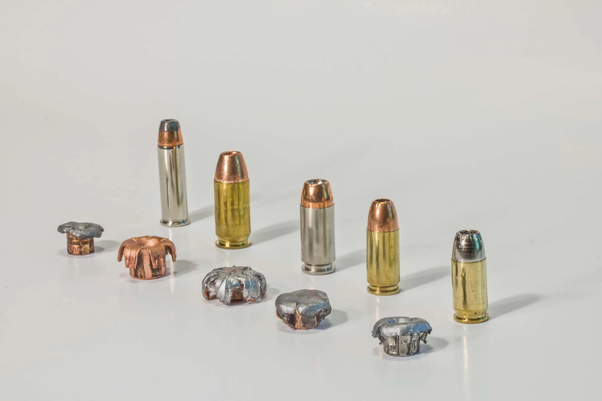Why We Choose Brass Over Steel and Aluminum Casings
When it comes to centerfire ammunition, the casing material is an important factor in both performance and cost. The three most common materials used for cartridge cases are brass, steel, and aluminum. Each has its pros and cons, but for our money, brass is the clear winner. Here's why we believe brass casings are superior for the vast majority of shooters.

Brass vs. Steel Casings
Steel cased ammo, such as the Wolf and Tula brands, is sometimes touted as a more economical alternative to brass. However, the upfront savings come with some significant downsides:
- Corrosion Resistance Brass is much more corrosion resistant than steel. Even lacquered steel casings can rust if exposed to moisture or humidity.
- More consistent performance Brass is softer and more malleable, so it creates a better seal against the chamber wall. This leads to more consistent velocities.
- Less wear and tear Steel is harder on extractors and ejectors due to its stiffness. Over time, this increases wear and tear on the gun itself.
- Allowed everywhere Most indoor shooting ranges don't allow steel cased ammo because the steel can damage backstops and increase fire risk from sparks.
- Reload-ability Perhaps most importantly, brass casings can be reloaded many times over. Steel generally can't be reloaded at all.
So while steel cased ammo may seem attractively priced, it has some significant limitations. For shooters who put serious volume downrange, carefully calculate the total long-term cost of steel vs. brass.
Brass vs. Aluminum Casings
Aluminum cased ammunition is less common than brass or steel, but has been used in the past by some manufacturers looking to reduce weight and cost. Like steel, aluminum cased ammo is cheaper up front than brass. But it comes with even more problems:
- Reliability Aluminum is much softer than brass and can easily be damaged by ejectors, especially in semi-auto rifles.
- Accuracy Aluminum deforms and flows under pressure rather than expanding elastically like brass. This negatively affects accuracy.
- Cleanliness Aluminum doesn't seal as well as brass, which allows gas and unburned powder to blow back into the action, requiring more frequent cleaning.
- Reload-ability Aluminum casings are not reloadable. Period.
We've found that any potential weight savings of aluminum are easily outweighed by the performance compromises and inability to reload. In our view, aluminum cased ammo is not a viable choice for any serious use.
The Bottom Line on Brass
While some shooters will always go for the absolute cheapest rounds they can find, brass is the material of choice for a reason. Brass cased ammunition offers the best blend of performance, cost-effectiveness (when including reload-ability, and wear and tear on firearms), versatility, and ease of use. It resists corrosion, feeds and extracts reliably, and can be reloaded multiple times to greatly reduce cost per shot.
Unless extreme budget constraints or unique logistical challenges dictate otherwise, we strongly recommend choosing brass cased ammunition across the board. In the long run, it's the option that will serve shooters best in the vast majority of applications.